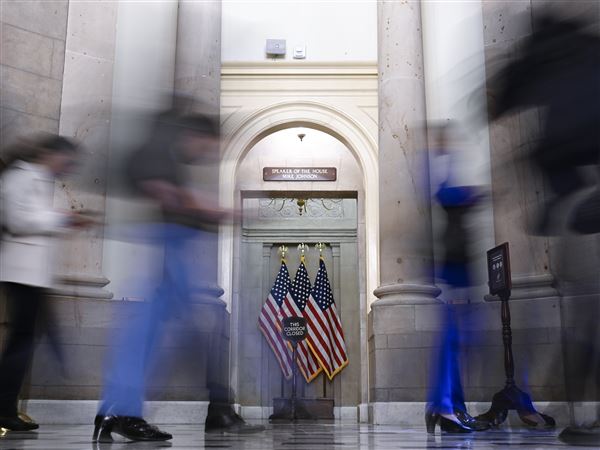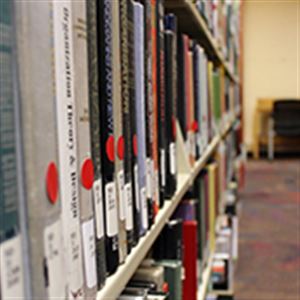A University of Pittsburgh panel has concluded that reproductive biologist Gerald Schatten shirked his responsibilities as senior author of a research paper on stem cells derived from cloned human embryos that later was revealed as a fraud.
 Read the summary of the University of Pittsburgh report on Dr. Gerald Schatten
Read the summary of the University of Pittsburgh report on Dr. Gerald Schatten
In a nine-page report dated Feb. 8 and made public yesterday, the panel said Dr. Schatten was guilty of "research misbehavior" and should be disciplined, but that his actions did not rise to the level of scientific misconduct. He likely did not intentionally falsify or fabricate data, the report said.
Panel members said they had no evidence that Dr. Schatten, director of the Pittsburgh Development Center at Magee-Womens Research Institute, was aware of research misconduct that occurred in the laboratory of the lead researcher, Hwang Woo-suk of Seoul National University.
The panel, however, chastised Dr. Schatten for not displaying the oversight and critical judgment expected from a senior scientist, and for his "concerted and deliberate" effort to distance himself from his South Korean collaborators when he testified.
The report made clear that he could have gone to Seoul to look at the cells despite federal and state restrictions on embryonic stem cell research, and those restrictions cannot be the excuse for his lack of oversight and judgment.
"We recommend that the University administration imple- ment whatever corrective or disciplinary actions are commensurate with this finding of research misbehavior," the report said.
It also suggested amending university ethics guidelines to include "a specific statement regarding the responsibilities of senior or corresponding authors of scientific publications."
According to a university news release, "further corrective action, if any," will be at the discretion of Dr. Arthur Levine, senior vice chancellor of health sciences and, like all personnel matters, will be kept confidential. Members of the panel likewise remain anonymous and the university made no one available to answer questions yesterday.
Dr. Schatten continues to be a tenured professor and active researcher at Pitt, the news release said.
"They're going to have to come up with a sanction that is equivalent to the problem, and the problem is serious," said Dr. Arthur Caplan, director of the Center for Bioethics at the University of Pennsylvania.
He added that Dr. Schatten probably shouldn't lose his job or be banned from conducting research, but a suspension or supervision might be appropriate.
"I'm sure there is a sigh of relief all around the Pittsburgh campus knowing that no evidence exists that Dr. Schatten was involved in any way in fabricating the data, lying about experiments ... or distorting photographs," Dr. Caplan said. "He had no direct role in perpetrating one of the most incredible frauds in the history of science."
Last month, an investigatory panel at Seoul National University concluded that none of the 11 cloned stem cell lines described in a paper published last year in the journal Science existed.
The report released yesterday by Pitt provided more details about data fabrication in that paper, as well as a stem cell paper by Dr. Hwang published in 2004, also in Science.
One of Dr. Hwang's staff members voluntarily donated eggs for the research, and Dr. Hwang drove the researcher to the hospital for the procedure, the panel heard. Dr. Schatten learned in November of the donation, considered unethical in scientific circles and originally denied by Dr. Hwang, and he publicly severed his ties with the South Korean team.
The panel also heard testimony that Dr. Hwang told a researcher to use images of stem cells from two lines to stand in for cells from eight other lines. The witness said that paired tubes of donor cells and matched embryonic stem cells were actually duplicate tubes from one source, and members of Dr. Hwang's lab knew about the charade.
Because of severe contamination, eight stem cell lines "were all thrown away on January 10, 2005," the report said. Six more lines were derived in the next two months, but likely would not have been established before submission of the research paper to Science editors in mid-March 2005.
The witness said that certain experiments were only done on two lines, not 11 as published, and some pictures were fabricated from stem cells produced through in-vitro fertilization cell lines, not cloned cell lines.
"While we were not able to determine the origins of the falsification and fabrication in any detail, it seems likely that multiple members of Dr. Hwang's group either participated or were aware of the misconduct," the report said.
The panel explored Dr. Schatten's role in the research.
He testified that he met Dr. Hwang at a conference in Seoul in December 2003 and visited his lab, where Dr. Hwang told him of a stem cell paper that Science rejected. The Pitt expert voluntarily aided the South Korean scientist by tweaking the manuscript and he lobbied Science editors to accept it. That paper was published by the journal in 2004 and retracted last month because of data fraud.
"Dr. Schatten's role in successfully getting the 2004 paper published in Science is likely to have provided considerable encouragement to Dr. Hwang to offer him authorship on the 2005 paper," the report said.
Donald Kennedy, Science's editor-in-chief, said that while Dr. Schatten did talk to journal editors, his intercession was not the reason the paper was published.
"He was a somewhat more persistent advocate than most," Dr. Kennedy said. But "there's nothing wrong with being an advocate for somebody else's work" and its not an unusual thing for a senior scientist to do.
During 2004, Drs. Schatten and Hwang met almost monthly at various scientific meetings and talked almost daily through e-mail or by phone. In November of that year, they discussed writing a report about the establishment of new embryonic stem cell lines.
The following January, they started planning the 2005 paper. On New Year's Day, Dr. Schatten sent Dr. Hwang an e-mail detailing what would be needed in the figures and two weeks later, in India, they wrote a draft. Dr. Hwang offered Dr. Schatten credit as an author, but the latter didn't accept immediately.
For many weeks afterward Dr. Schatten received data, largely tables and figures, from Dr. Hwang, his primary contact with the South Korean team, and the two exchanged draft versions of the paper. Dr. Schatten wrote all the drafts of the text, the panel said, but didn't generate the data, figures or tables that were the foundation of the research.
The report also described " a discrepancy" in Dr. Schatten's characterization of the term senior author. At first, he told the panel he was uncertain about accepting the offer of that status, and he consulted with Science editors, his dean, project officers at the National Institutes of Health and university legal counsel before agreeing.
But in a later interview with the panel, Dr. Schatten said he wasn't a senior author but a kind of special co-author. Still, he was the author who responded to peer reviewers' comments before the paper's publication.
"We believe that Dr. Schatten was disingenuous in his second interview in harping on strict definitions of 'writing' and 'senior author,' " the report said. "Taken together with written comments to the committee, this appears to be part of a concerted and deliberate effort on the part of Dr. Schatten to further distance himself from Dr. Hwang and their joint publications.
"This is in sharp contrast to the full participation of Dr. Schatten in the media spotlight following publication of the paper," the panel noted.
Also, Dr. Schatten was the only person who signed a cover letter for the manuscript submission that stated all 25 authors had read and approved the paper. The panel learned that likely only a few had read it before submission, so Dr. Schatten is responsible for making a false statement. Had all of the researchers reviewed the manuscript, it's possible one would have blown the whistle before publication, the panel said.
The panel also raised questions about honoraria Dr. Schatten received from the South Koreans.
Dr. Schatten accepted a total of $40,000 within 15 months from Dr. Hwang, including $10,000 paid in cash at a news conference after the 2005 paper was published. Those amounts seem "far above normal honoraria for consultation," the report said. He also approached Dr. Hwang with a proposal to get $200,000 for lab support for the last four months of 2005.
The 2005 paper gained credibility because it had Dr. Schatten's name on it, and he gained because the paper enhanced his reputation, created opportunities for additional research funding and could have led to "considerable personal financial benefit," the report said.
It's possible the panel has addressed those concerns more fully internally, Dr. Caplan said. But, he added, "That's an area where I think we'll get more speculation and more second-guessing."
First Published: February 11, 2006, 5:00 a.m.
















